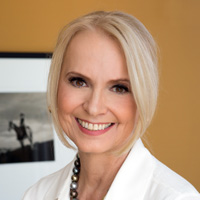The Bodacious Benefits of a Donor Advised Fund
From a bevy tax breaks to the opportunity to involve family members and future generations in a legacy of giving, donor advised funds add leverage and flexibility to a comprehensive financial plan.


Since 1931, donor advised funds have been offered by local community foundations and more recently have become available through broker-sponsored charitable gift funds. They are something akin to a marriage between a private foundation and a mutual fund.
Donor advised funds allow people to establish separately identified accounts at a charity and then direct how the charity should use that money. Establishing a fund is like investing in a mutual fund, because each donor’s assets are pooled together into a common account owned, maintained and managed by the charity.
One of the main benefits of a donor advised fund is that it allows individuals with philanthropic intent to have their charitable assets professionally managed and distributed to desired causes at a fraction of the cost of a private foundation. But, lower cost is only one of many benefits. Donor advised funds also offer a number of creative financial planning opportunities.

Sign up for Kiplinger’s Free E-Newsletters
Profit and prosper with the best of expert advice on investing, taxes, retirement, personal finance and more - straight to your e-mail.
Profit and prosper with the best of expert advice - straight to your e-mail.
Chief among these is their tax deductibility. Contributions to a donor advised fund are tax deductible in the year they are made. And, the limit on deductibility is huge. One can donate up to 60% of adjusted gross income (AGI). This creates a meaningful planning opportunity in years where one has a windfall that creates a big bump up in taxable income. Adding to one’s donor advised fund can help mitigate the tax burden of that one-time event.
The tax deductibility of contributions made to a donor advised fund can also be leveraged. This leverage is achieved by contributing highly appreciated assets. The deduction on low-cost-basis property contributed to a fund is determined by its current value, not its cost. So, the donor receives a double benefit: a larger deduction and no capital gain on the property’s appreciation.
Even though the deduction limit on property is lower than cash (30% of AGI), most community foundations and broker-sponsored charitable gift funds offer great flexibility regarding the types of property that can be donated. For example, many charities allow fund holders to donate an interest in a privately held business, the cash value of whole-life insurance policies, artwork, collectibles, automobiles, livestock and even Bitcoin.
Donor advised funds also provide great estate-planning opportunities. Assets contributed permanently leave one’s estate, so they aren’t subject to estate taxes. With the lifetime exclusion currently at over $11 million, this offers families lots of flexibility to use a donor advised fund in their planning. Donors can also use their annual gift tax exclusion to make contributions to their fund. This means that a married couple can each contribute up to $15,000 — for a total of $30,000 — every year. And, since assets in a donor advised fund are allowed to grow tax-free, they can create a lasting legacy.
For families with charitable intent and a desire to pass that value onto future generations, a donor advised fund provides the opportunity for children and grandchildren to be involved in the decision-making process.
As its name implies, a donor advised fund gives the donor the ability to advise the charity on how to use the money in the fund. Involving children in this process teaches them that they can effect change to improve and strengthen their local community, support the arts, raise educational standards, fight disease or provide relief to victims of war or natural disasters. It can also prepare them to take the helm in adulthood. A well-funded donor advised fund often will outlive its benefactor. As a result, the donor’s heirs will be able to direct gifts during their lifetimes as well. So, while contributions made to a donor advised fund provide an immediate benefit in the form of a current year tax deduction, they can also provide long-term gifting opportunities that last for more than one generation.
In terms of comprehensive financial planning there are few strategies that provide the many and varied opportunities that one gets from a donor advised fund. Not many charitable vehicles provide the same funding flexibility regarding the types of assets that can be donated. Fewer offer the donor the ability to be involved in how their contributions are used. And, still fewer provide the context to help teach heirs the value of philanthropy.
As a result, the donor advised fund is a remarkably useful tool to help carry out one’s charitable intent as a component of his or her unique financial planning objectives. In many cases, including a donor advised fund as part of a comprehensive financial plan can provide both leverage and flexibility to help an investor achieve long-term, goals-based investment outcomes.
Profit and prosper with the best of Kiplinger's advice on investing, taxes, retirement, personal finance and much more. Delivered daily. Enter your email in the box and click Sign Me Up.

I'm the CEO of Better Money Decisions (B$D) and co-author of the blog Better Financial Decisions. As a principal of B$D, I'm excited to continue my long career as an investment professional. Living and working in places as diverse as Saudi Arabia and Budapest, Hungary, has given me a unique perspective on the world of investing. My book, "Bozos, Monsters and Whiz-Bangs: Bad Advice from Financial Advisors and How to Avoid It!" is an insider's guide to finding the right adviser.
-
 I'm an Investment Professional: These Are the Three Money Tips I'm Giving My College Grad
I'm an Investment Professional: These Are the Three Money Tips I'm Giving My College GradCollege grads can help set themselves up for financial independence by focusing on emergency savings, opting into a 401(k) at work (if it's offered) and disciplined, long-term investing.
-
 Stock Market Today: S&P 500, Nasdaq Hit New Highs on Retail Sales Revival
Stock Market Today: S&P 500, Nasdaq Hit New Highs on Retail Sales RevivalStrong consumer spending and solid earnings for AI chipmaker Taiwan Semiconductor Manufacturing boosted the broad market.
-
 I'm an Investment Professional: These Are the Three Money Tips I'm Giving My College Grad
I'm an Investment Professional: These Are the Three Money Tips I'm Giving My College GradCollege grads can help set themselves up for financial independence by focusing on emergency savings, opting into a 401(k) at work (if it's offered) and disciplined, long-term investing.
-
 New SALT Cap Deduction: Unlock Massive Tax Savings with Non-Grantor Trusts
New SALT Cap Deduction: Unlock Massive Tax Savings with Non-Grantor TrustsThe One Big Beautiful Bill Act's increase of the state and local tax (SALT) deduction cap creates an opportunity to use multiple non-grantor trusts to maximize deductions and enhance estate planning.
-
 Know Your ABDs? A Beginner's Guide to Medicare Basics
Know Your ABDs? A Beginner's Guide to Medicare BasicsMedicare is an alphabet soup — and the rules can be just as confusing as the terminology. Conquer the system with this beginner's guide to Parts A, B and D.
-
 I'm an Investment Adviser: Why Playing Defense Can Win the Investing Game
I'm an Investment Adviser: Why Playing Defense Can Win the Investing GameChasing large returns through gold and other alternative investments might be thrilling, but playing defensive 'small ball' with your investments can be a winning formula.
-
 Five Big Beautiful Bill Changes and How Wealthy Retirees Can Benefit
Five Big Beautiful Bill Changes and How Wealthy Retirees Can BenefitHere's how wealthy retirees can plan for the changes in the new tax legislation, including what it means for tax rates, the SALT cap, charitable giving, estate taxes and other deductions and credits.
-
 Portfolio Manager Busts Five Myths About International Investing
Portfolio Manager Busts Five Myths About International InvestingThese common misconceptions lead many investors to overlook international markets, but embracing global diversification can enhance portfolio resilience and unlock long-term growth.
-
 Parents Prepare: Trump's Megabill Brings Three Crucial Tax Changes
Parents Prepare: Trump's Megabill Brings Three Crucial Tax ChangesTax Changes Are you a parent? The so-called ‘One Big Beautiful Bill’ (OBBB) impacts several key tax incentives that can affect your family this year and beyond.
-
 I'm a Financial Planner: Here Are Five Smart Moves for DIY Investors
I'm a Financial Planner: Here Are Five Smart Moves for DIY InvestorsYou'll go further as a DIY investor with a solid game plan. Here are five tips to help you put together a strategy you can rely on over the years to come.